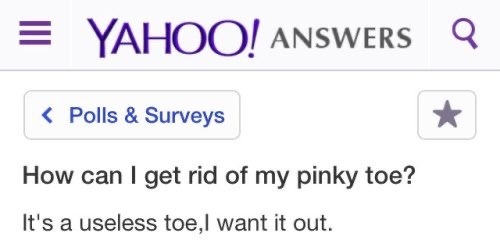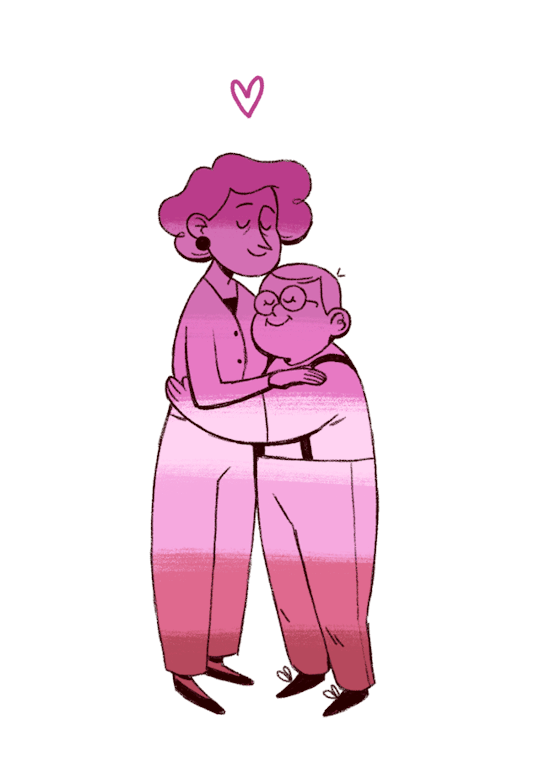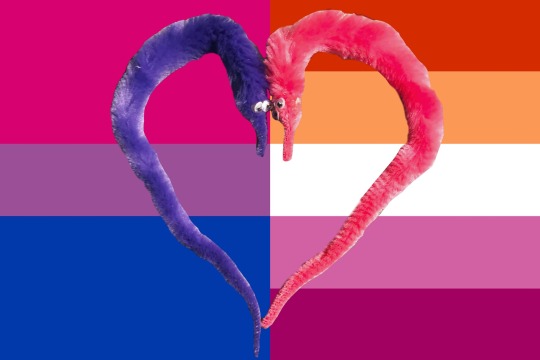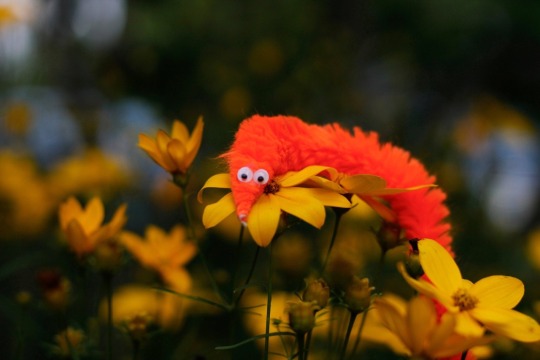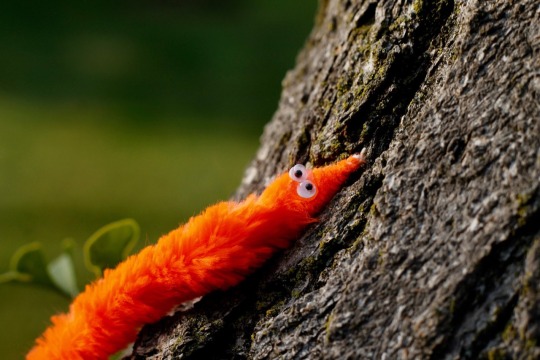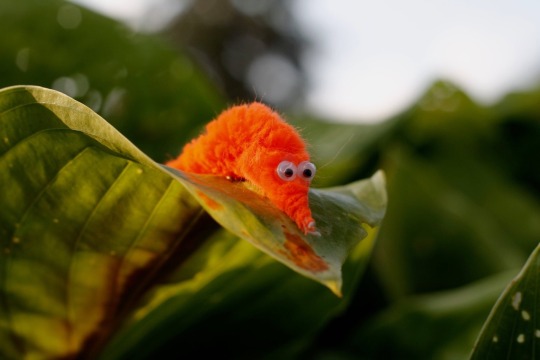Text
They say be the change you want to see in the world so I bought my bisexual sister a bi pride pin for pride month
I also bought myself this sticker

32 notes
·
View notes
Text
yes do it now
Should I buy some Worms on a String and turn them into jewelry? 🤔
5 notes
·
View notes
Text
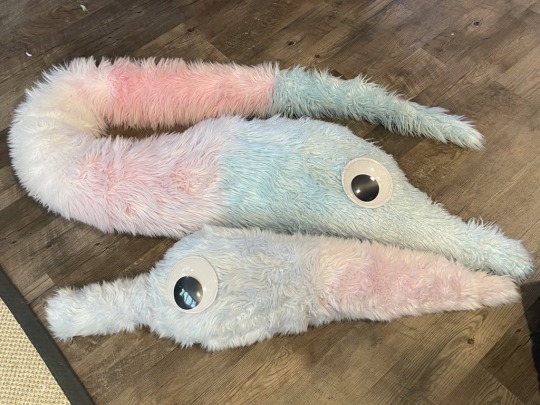
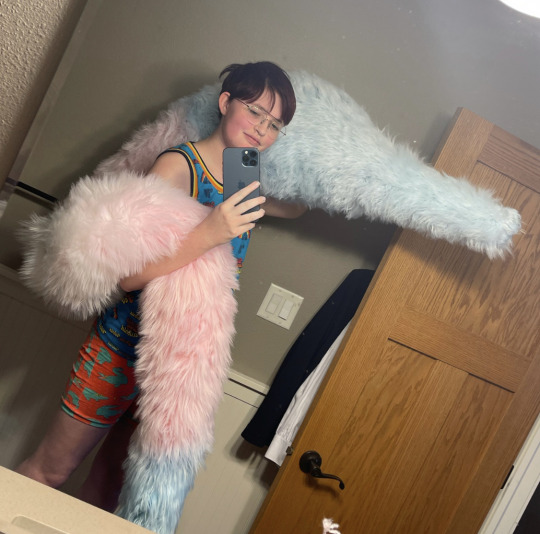
My Creatures Are Born
The obscurely bisexual giant worm is a healthy 4.5 feet and the trans pride worm is 11 feet long
536 notes
·
View notes
Text
I hate when my mom is like “ur being so dramatic rn” like bitch YOU gave me the borderline personality disorder, this ones on u girlboss
0 notes
Text
if i was a grisly bear i would literally attack every single human i came in to contact with . this post might seem controversial but its my opinion
64K notes
·
View notes
Text
The “Lesbian-Only Term” Myth: A Comprehensive Historical Essay on ‘Butch’ and ‘Femme’
INCLUDES (in this order):
Essay
Sources
FAQ
-
Before we begin, a key detail is that ‘lesbian’ originally was a synonym for ‘tribade’, meaning any woman who was intimate with another woman. Lesbianism was something someone did. You could have been ‘a lesbian’ and be romantically involved with a boy. Think of ‘lesbian’ and ‘lesbianism’ in these early times as being a synonym for ‘WLW’ (women loving women); a blanket term. It wasn’t until 1892 that neurologists used bisexual. And even then, it wasn’t until the 1960s (and no sooner) that the usage of ‘bi’ became common in a non-academic context. It wasn’t until 1988 that bisexual women and lesbians were ‘officially’ separated (though the movement to separate them began beforehand), and it was also this time that ‘lesbian’ began to mean ‘a woman exclusively attracted to women.’
There are multiple incidents and people credited with the coining of ‘butch’ and ‘femme’. I will go through all of the possible origins, before getting to what is, fairly obviously and easily, the actual origin of the terms.
The coining of the term ‘femme’ is often accredited to historical lesbian, Anne Lister. However, what is often left out of this statement is that the original use of ‘femme’ in the context of describing her partner, Marianna Lawton, who was also involved with a man. It wasn’t even Anne Lister saying it; rather, it was a woman friend who said to Anne about Marianna, ‘Plus femme que moi,’ which translates to, ‘She is more womanly than me.’ If one is saying that ‘femme’ was coined by Anne Lister, they are also saying that ‘femme’ was originally directed at and used to describe a woman who had some sort of romantic relationship with a man.
Butch is said to be a term coined by gay men to mean ‘masculine’ in a type of slang called Polari, otherwise known as Palare. Whilest the exact timeframe of this phrase becoming popularized is unclear, it was popular before the radical feminist movement had separated lesbians and bisexual women, meaning that, even if it did mean ‘masculine lesbian’, it would refer to all WLW, as that is what ‘lesbian’ meant at the time. Butch came into common use with lesbians in the 1940s; again, before the separationist movement came to split up the WLW community into ‘lesbians’ and ‘bisexuals’. There were plenty of butch non-monosexuals (which was the term back then for what we now know as bisexuality).
However, the first usage of ‘butch’ and ‘femme’ is actually ball culture. Ball culture was widely dominated by LGBT+ youth of color. The terms including ‘butch’ and ‘femme’ included:
Butch queen: cis MLM
Femme queen: trans and feminine woman
Butches: masculine-presenting women
Butch queen schoolboy realness: A cis MLM. The ‘realness’ refers to being able to ‘pass’ as a heterosexual male.
Femme queen realness: A trans woman. The ‘realness’ refers to being able to ‘pass’ as a cis woman.
Femme queen face: a category trans woman, highlighting their face.
Butch face: a category for masculine cis women, highlighting their face
Butch queen face: a category for cis men, highlighting their face
Vogue femme: a vogue category for cis MLM and trans men
Femme queen performance: a vogue category for trans women
As you can see, ‘butch’ and ‘femme’ applied to a wide variety of LGBT+ people! It’s easy to dismiss ball culture in the modern era, as it appears to have mostly been taken over by cishets at this point, but when it began, ball culture was for LGBT+ folks; a safe haven for trans, nonbinary and GNC people of color.
So, the terms ‘butch’ and ‘femme’ started off as slang and/or categories in a culture where the L, the G, the B, the T and the plus to all preform. Not even mildly close to lesbian-exclusive in that regard. But I’m sure, when you think about femme and butch history, you think of bar culture.
‘Butch’ and ‘femme’ labels closer to how we know them today started in lesbian-only gay bars, around the 1940s. However, ‘lesbian’, at this point in time, was still just a term meaning ‘WLW’, which means that lesbian bars were frequented by women exclusively attracted to women and women attracted to multiple genders. This means that not only were bi women there during yet another situation often accredited to coining these terms but, since these terms would have been born from bars where bi women would have been, that would have literally meant that bi women also helped to coin these terms, as well.
It wasn’t until the 1960s (and no sooner) that the word ‘lesbian’ began known as being exclusively attracted to women, and not to men whatsoever. The separationist movement between lesbians and bisexuals can be largely attributed to TERF Shelia Jeffery’s manifesto. It says, rather bluntly, ‘Our definition of a political lesbian is a woman-identified woman who does not (want to be intimate with) men,’ and describes bisexual women as ‘collaborating with the enemy’. Women who took this stance on being attracted to only women as a political statement are often referred to as ‘political lesbians’. That is to say, of course, not all lesbians who defined lesbianism this way were radical feminists or political lesbians. However, for a, if not large, than extremely vocal, group, that is what lesbianism was to them; a political statement. By the 80’s, there was a firm split between bi women and lesbians, who proceeded to ignore the fact that the ‘traitorous’ bi women had ever been there at all. They successfully erased bi women’s history. After all, all of their history and culture had ‘LESBIAN’ written in big, bold, capital letters! This is why now, people can easily think that ‘femme’ and ‘butch’ are lesbian-exclusive; because radical feminists were purposefully trying to erase bisexual women’s part in their history.
And, again, on usage of ‘femme’ outside of women exclusively being attracted to women; James McDoland’s Dictionary of Obscenity, Taboo and Euphemism, published in 1988, defines ‘fem’ like this:
“Fem (col.) A passive homosexual.
The term may be applied to both men and women, but more usually to men. It Australia it is generally applied only to men.
It is based upon the French word for women, femme, and indeed, in English, this spelling is sometimes used for passive lesbians, in preference to fem.”
That’s why the claim ‘butch and femme arose from the LESBIAN community for LESBIANS exclusively about the LESBIAN experience’ is misleading; lesbian communities were shared with bisexuals from the very beginning. ‘Lesbian’ meant all WLW. So, that means that butch and femme arose from the WLW community for WLW exclusively about the WLW experience. Bi women who are attracted to women and lesbians share the exact same history; the same history which created these terms. And it didn’t even just belong to WLW, historically! It was originally used in ball culture before anything else.
SOURCES:
(Source 1) (Source 2) (Source 3) (Source 4) (Source 5) (Source 6) (Source 7) (Source 8) (Source 9) (Source 10) (Source 11)
More Reading On This Subject:
The Evolution of Femme: As the user states, “In this project I hope to explore the evolution of femme identity and the changes it has gone through… I argue that femme is a term that has history in many parts of the LGBTQ community.“ A thoroughly interesting read, which dives into the different contexts of the femme identity.
A Brief His and Herstory of Butch And Femme: An article written by a nonbinary lesbian, talking about the ‘lesbian exclusive’ myth, calling out biphobia, and the irony of the “white butch and femme” ideal of terms that were originally made by QTPOC.
Why Butch/Femme Belong To Bisexuals As Well: An article written by a bisexual woman, which links to a multitude of sources, including books, essays and her other articles on bi matters.
And now, a FAQ, to debunk misinformation and common biphobic sentiments!
Q: I heard that bi women called themselves a part of the LGBT community when they were in a relationship with a woman, but called themselves straight when with a man.
A: This is misinformation. As I said before, ‘lesbian’ was not an identity; it was something you did. If you ever were in a relationship with or had attraction to a woman, you were a lesbian. They didn’t consider themselves a lesbian at some point, or straight at another; much more common was the phrase ‘non-monosexual lesbian’, if they even bothered to make a distinction at all. Again, I feel like I must compare how ‘lesbian’ was used to the term ‘WLW’ nowadays; even bi women nowadays who are in relationships with men are WLW. That’s how the term ‘lesbian’ worked.
Q: Uhhh, ‘doe’ and ‘stag’ were LITERALLY made for this reason. Use your OWN terms.
A: Yes, you’re right. ‘Doe’ and ‘stag’ WERE made out of pressure put on bi women to not ‘steal lesbian culture’. But do you realize how insanely dehumanizing it is to say, ‘You’re not allowed to identify as these terms with your history behind them, go identify as an animal instead’? Many WOC are uncomfortable with these terms, because they are animal terms. Plus, we never should have had to make those terms. ‘Femme’ and ‘butch’ belong to us, too. And we shouldn’t have to make up new terms with no history behind them just so people won’t bully us for using our terms. Bi women can identify as a stag or doe IF THEY WANT. It is not your place to tell them how to identify.
On this subject, the creators of the term ‘doe’ had this to say: “Why is there a perceived divide between ‘bi’ and ‘lesbian’ history? We share history. We run in the same circles. Usually kissing!… It (doe and tomcat discourse) exists within a framework that already posits bi women and lesbians as exclusive circles that sometimes overlapped, when really we have always been one circle, and radical feminism warped us… I created it (doe) as an alternative to femme because lesbians voiced discomfort with bi women using their self-identifiers. But what is yours and what is ours? Why are we inventing new language when we should be consolidating, reuniting, and celebrating one another?” (Source)
While I do not agree with everything that is said in that post, it is important to note that even one of the creators of these terms seems to be upset about having to create whole new terms for the bisexual community when bi women and lesbians share so much history.
Also, getting back to racism, ‘doe’ and ‘stag’ are very uncomfortably close to the term ‘buck’. ‘Black buck’ was a racist term used to describe black men who refused to follow the law of white people and is painted as rude and violent. This is yet another reason why bisexual people of color do not want to touch these terms with a 5-foot pole. (Source)
Q: Why can’t lesbians have something to themselves for once?!
A: Please, don’t pull the oppression competition card on me. All LGBT+ people are oppressed. It shouldn’t be a race of who is ‘the MOST oppressed’. Lesbians have a lot to themselves, and so do bi women. This not a matter of ‘letting a group have something for themselves’, or ‘we’re the most oppressed, you take everything from us’. This is a matter of taking back something that was purposefully and maliciously taken away from us by biphobic radical feminists.
Q: History doesn’t matter, it’s the NEW definition that matters, and the NEW definition means it’s a LESBIAN identity.
A: When bi women say that they want to identify as femme or butch, people pull out the ‘it’s always been a lesbian term, historically’ card. When we show said people the historical facts, people pull the, ‘it’s the NEW definition that matters’ card. Please choose one. Besides, if the definition changed one (from all WLW to lesbians), then it can change again, if you allow it. Plus, it’s really crappy to say, ‘I know you used to use these terms too, and they’re a part of your history, but, you can’t use them because we decided we don’t want you to. These are ours now.’
Q: But you are inherently available to men! You can’t be a butch or femme if you can be in a straight relationship!
A: Please, think about your wording. ‘Inherently available to men’ is a term many bi women detest. It makes us sound like an item for men to consume whenever they wish. Bi women cannot, by definition, be in a ‘straight relationship’, because, by her being in it, one of the parties is not cishet. Besides, some bi women aren’t even attracted to men (I’ve met women who are attracted to nonbinary people and women and call themselves bi). Even if a bi woman is currently in or looking for a relationship with a man, bi women (who didn’t have that term at the time) who were “available to men” identified as a femme or butch, when the terms were created and popularized.
Q: But if a man is with a woman who says she’s a butch or femme, that’ll perpetuate the stereotype that lesbians can be with men!
A: If a lesbian is telling a man they wouldn’t want to be with him, they wouldn’t just say, “I am a femme/butch.” They would say, “I am a femme/butch lesbian.” And if a man still tries to be with them after learning they are a lesbian, he is lesbophobic. That is not bi women’s faults. Besides, ‘femme’ and ‘butch’ are terms meant to define ourselves in our own community, not to straight men.
Q: You can’t understand what butch and femme REALLY mean unless you’re a lesbian.
A: So, we are ‘less WLW’ than you because we may or may not be attracted to men, so we cannot understand, is what you are saying? Or, more so that we aren’t able to understand it, but if we identified as lesbians, we would magically gain the ability to understand, because we’re lesbians? Definitions of words aren’t that hard to understand. We don’t use them because they’re ‘cool’. Bi women are not too stupid to understand, and it’s patronizing and INCREDIBLY rude to treat us like we’re too dumb to understand terms we helped to create.
Q: You kept talking about bi women in that essay. What about other LGBT+ people?
A: I talked specifically about bi women, because that is what I am and what this blog is about. However, I believe all LGBT+ people can use butch and femme. It was coined in ball culture, after all, which embraced all LGBT+ folks and their gender expression!
Q: Well, if it’s for all LGBT+ people and not just lesbians or WLW, what does it mean?
I believe that butch and femme are very contextual identities. There’s a lesbian context, a general WLW context, a trans context, a MLM context, and so on and so forth. However, generally speaking, I would say that a good definition for butch would be ‘a LGBT+ person whose masculinity is tied to them being LGBT+, and preforms masculinity for one’s self, and not because of societal pressure or the lackthereof.’
Q: Just say you hate lesbians and go, lesbophobe!
A: Okay, so we’re going to try and claim that one is bigoted for literally just knowing their history now? Nowhere here did I say lesbians COULDN’T use these terms, either, which is, ironically, better than what femme/butch gatekeepers are trying to do. So, by this logic, maybe I should just reply to every femme/butch gatekeeper with ‘just say you hate bi women and go’!
Q: You’re not a femme or butch if you’re not a lesbian, no matter how much you say you are.
A: Ah, I see, we’re deciding other’s identities for them now? Alright. What if someone decided to say that all gay people are actually bi? By this logic, if someone decided to say, ‘Gay people are actually bi, no matter how much they say they are gay, so nobody can identify as gay or a lesbian anymore,’ that must make them correct!
No. It doesn’t make them correct. Just because you decide to say ‘you can’t be this thing no matter how much you say you are’ doesn’t mean that anybody has to listen to you, or change their label. And, before someone attempts to take this out of context; no, I don’t believe in my example statement. I was trying to make a comparison of a biphobic statement to what would be a lesbophobic/homophobic statement.
Q: I didn’t read this whole thing because it’s too long and because I think you’re wrong, and I’m not going to try and read obviously incorrect information.
A: I’ve gotten this response multiple times. I can’t force you to read this, but I must say that refusing to read historical facts because you can’t stand to be provided with evidence that you may be incorrect is extremely telling to your state of mind involving this topic. That’s basically just covering your ears, closing your eyes, and screaming, “LALALALA! I’M RIGHT! I CAN’T HEAR YOUUU, LALALA!”
Q: But I-
A: I’m sorry, but ‘but’ nothing. Even if I hadn’t supplied you with a humongous essay about the history of bisexual women and how they helped to create the culture around the words you’re trying to keep from us, you still wouldn’t try to control how bisexual women experience femininity or the lack thereof. Our history was purposefully erased by radical feminists who considered us traitors. We’re taking our history AND our terms back, and there is nothing that anyone can do to stop us.
6K notes
·
View notes
Text
Worm off the string


Worm on some legs
Edit: since all of y’all just LOVE this. Here’s Cerberus.



64K notes
·
View notes
Text
Plague doctor mask but it’s a worm on a string face.
75K notes
·
View notes








